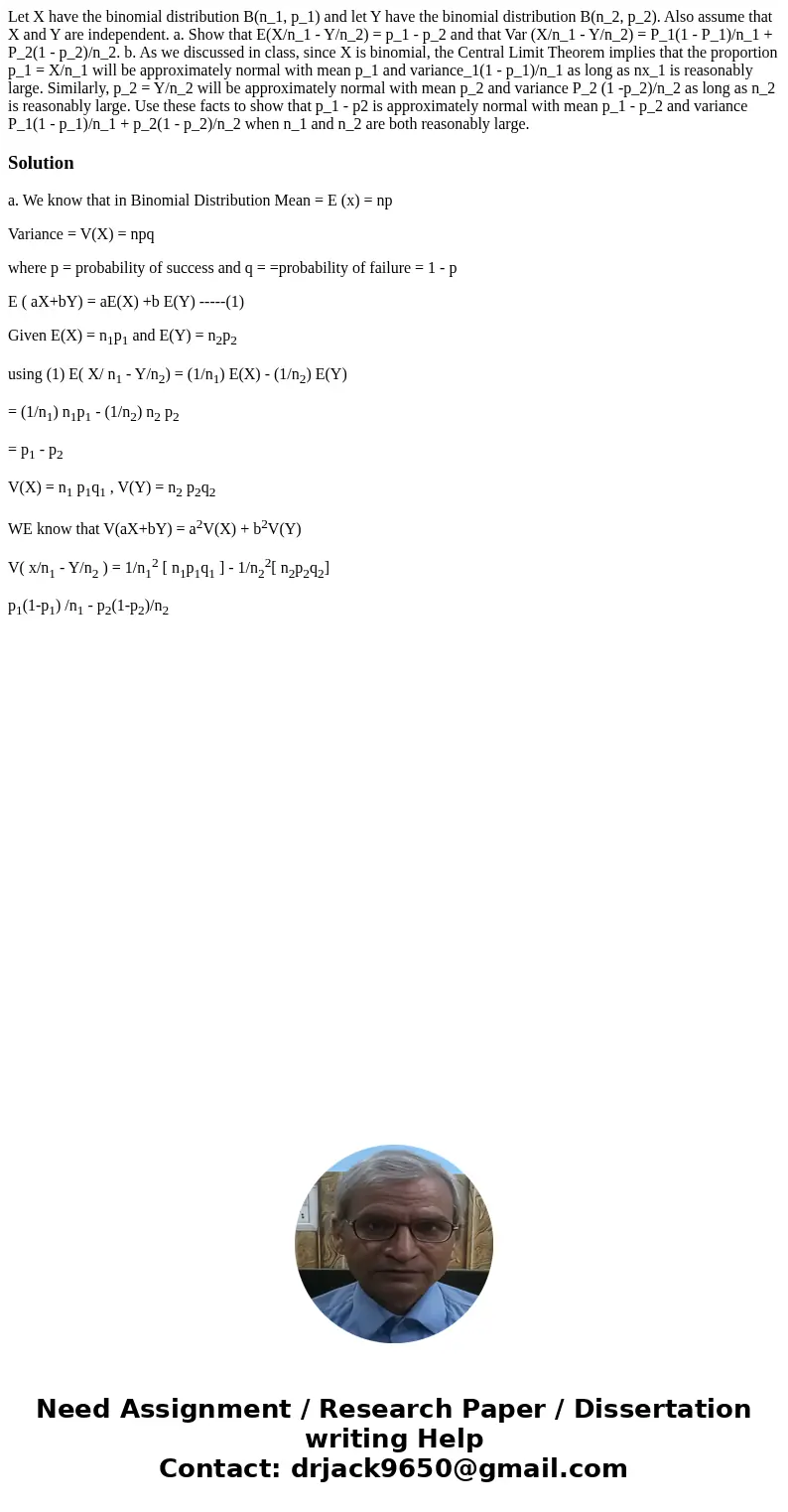Let X have the binomial distribution Bn1 p1 and let Y have t
Let X have the binomial distribution B(n_1, p_1) and let Y have the binomial distribution B(n_2, p_2). Also assume that X and Y are independent. a. Show that E(X/n_1 - Y/n_2) = p_1 - p_2 and that Var (X/n_1 - Y/n_2) = P_1(1 - P_1)/n_1 + P_2(1 - p_2)/n_2. b. As we discussed in class, since X is binomial, the Central Limit Theorem implies that the proportion p_1 = X/n_1 will be approximately normal with mean p_1 and variance_1(1 - p_1)/n_1 as long as nx_1 is reasonably large. Similarly, p_2 = Y/n_2 will be approximately normal with mean p_2 and variance P_2 (1 -p_2)/n_2 as long as n_2 is reasonably large. Use these facts to show that p_1 - p2 is approximately normal with mean p_1 - p_2 and variance P_1(1 - p_1)/n_1 + p_2(1 - p_2)/n_2 when n_1 and n_2 are both reasonably large.
Solution
a. We know that in Binomial Distribution Mean = E (x) = np
Variance = V(X) = npq
where p = probability of success and q = =probability of failure = 1 - p
E ( aX+bY) = aE(X) +b E(Y) -----(1)
Given E(X) = n1p1 and E(Y) = n2p2
using (1) E( X/ n1 - Y/n2) = (1/n1) E(X) - (1/n2) E(Y)
= (1/n1) n1p1 - (1/n2) n2 p2
= p1 - p2
V(X) = n1 p1q1 , V(Y) = n2 p2q2
WE know that V(aX+bY) = a2V(X) + b2V(Y)
V( x/n1 - Y/n2 ) = 1/n12 [ n1p1q1 ] - 1/n22[ n2p2q2]
p1(1-p1) /n1 - p2(1-p2)/n2

 Homework Sourse
Homework Sourse